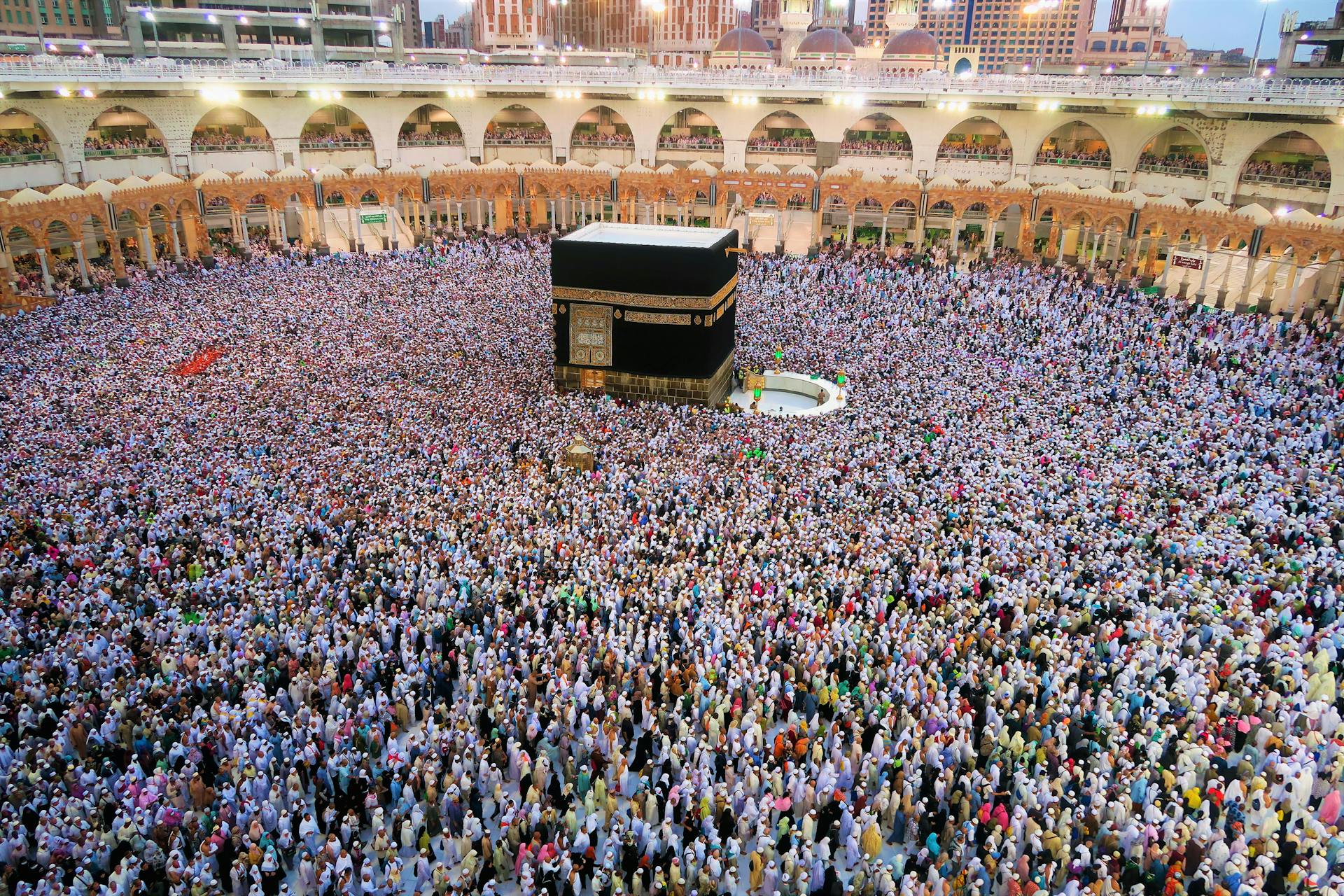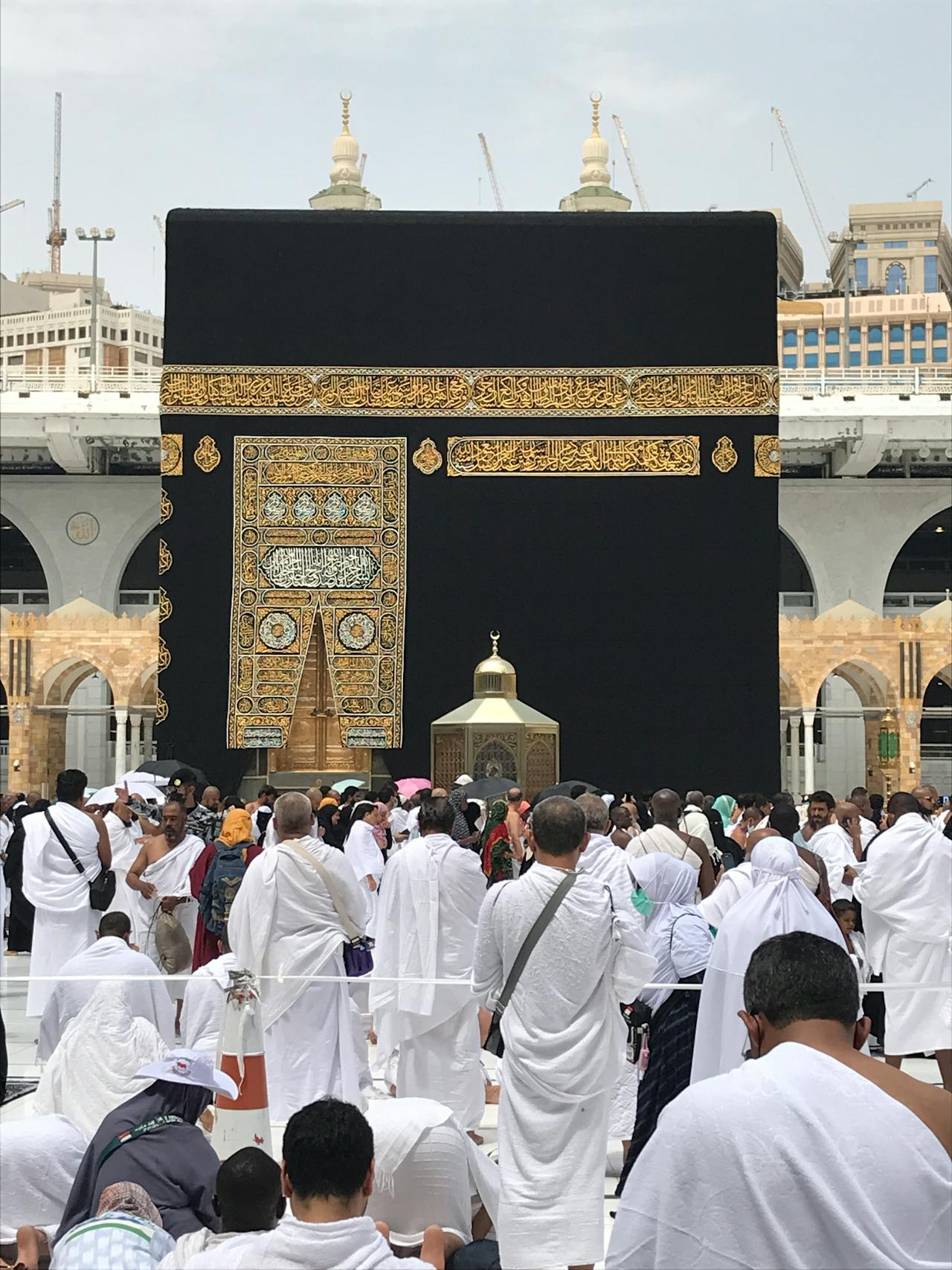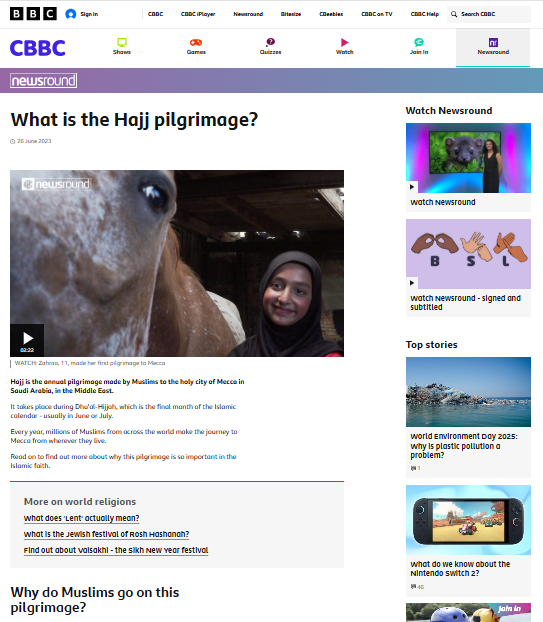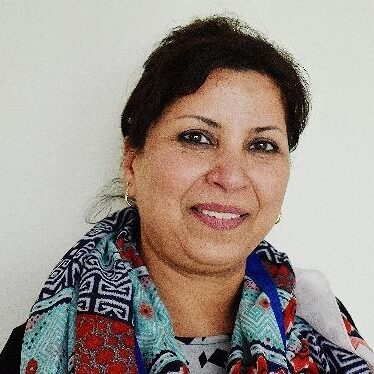Hajj: A Sacred Journey of Faith, Struggle and Unity

Once a year, millions of Muslims from around the world pack their bags and leave behind their homes, families, and everyday comforts. They head to the holy city of Makkah in Saudi Arabia, fulfilling one of the most important spiritual duties in Islam: the Hajj.
But Hajj is far more than a religious requirement. It is a deeply personal and emotional journey of the body, mind and soul.
More Than a Religious Duty
Hajj is one of the Five Pillars of Islam, meaning it’s one of the core acts that shape a Muslim’s faith and practice. Every Muslim who is physically, mentally and financially able is expected to complete this pilgrimage at least once in their life.
But what makes Hajj extraordinary is not just what Muslims do during those few days, it’s what it means. For many, it’s the fulfilment of a lifelong dream. For some, it’s a chance to seek forgiveness or a new beginning. For all, it’s a reminder of our shared humanity and the power of unity.
The Journey Begins at Home
Hajj often begins years before the journey itself. People save money, attend classes, learn the rituals, and prepare themselves spiritually and emotionally. There are goodbyes and nervous prayers. Elderly pilgrims sometimes know this may be their final great journey.
It’s not just a trip. It’s a calling.
Walking in the Footsteps of Prophets
Hajj follows the footsteps of the Prophet Ibrahim (Abraham) and his family especially the remarkable story of his wife Hajar. Her desperate search for water in the desert, running between two hills for her baby Ismail is honoured by millions of pilgrims today.
This thousands of years old story is re-enacted every year as pilgrims walk between the same hills of Safa and Marwah. It’s a powerful moment that connects modern lives with ancient resilience and deep selfless love.

A Sea of White – All Equal Before God
One of the most striking parts of Hajj is the clothing. Every pilgrim wears simple white garments known as Ihram. There are no brand names, no labels and no jewellery. Everyone looks the same.
It doesn’t matter where you’re from, how much money you have or what language you speak. In the Hajj, everyone is equal. It’s one of the few places on earth where people from every race, nationality, and background gather as one for the same purpose.
The Test of the Body and the Soul
Hajj is beautiful but it’s also demanding. There are long walks in the heat, huge crowds and very little rest. At times, it can be overwhelming, but many pilgrims say it’s the most moving experience of their lives.
Tears are common sometimes from exhaustion, sometimes from joy but often from deep reflection. Strangers become friends. People share water, shade, and stories. For a few days, the world feels united.
The Day of Arafah – A Moment of Mercy
What is Hajj? - For kids
One of the most emotional parts of Hajj is the Day of Arafah. Pilgrims gather on a vast plain, standing or sitting in prayer, asking God for forgiveness.
This day is often called the heart of Hajj, a time of silence, sincerity and hope. It’s believed to be the day when God’s mercy is at its greatest. Around the world, even Muslims who aren’t on Hajj fast and pray in solidarity.
More Than a Ritual
What makes Hajj so powerful is that it’s not just about what people do, it’s about what they feel. Hajj brings people face to face with their own struggles, weaknesses and hopes.
It’s about humility. Letting go of pride. Asking big questions. Reflecting on life’s direction.
When the pilgrimage ends, Muslims around the world celebrate Eid al-Adha. The Festival of Sacrifice. It’s a time of family, charity, reflection, and remembering the willingness of Prophet Ibrahim to give up what he loved most in devotion to God.
A Journey That Changes You
Hajj stays with people long after it’s over. Many returns with a renewed sense of peace, clarity and compassion. Some come back transformed, ready to live with greater purpose, kindness and awareness of others.
In a world so often divided by race, class or politics, Hajj offers a reminder: we are more alike than we are different. We are human. We are fragile and we are at our best when we come together.
Final Thoughts
Hajj is one of the world’s oldest and most sacred pilgrimages, but it is also one of its most profoundly human. It speaks to our need for connection with the Divine with others and with ourselves. It’s about stripping away distractions and remembering what truly matters: faith, love, forgiveness and unity.
Article by
Rashda Salamat
English as an additional language Teacher
The Inclusive Learning and Achievement Service (ILAS)
rashda.salamat@northtyneside.gov.uk


